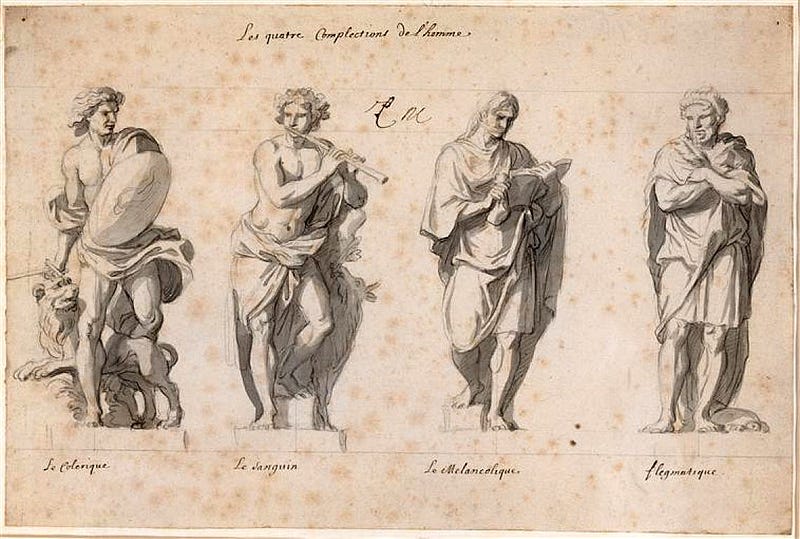Immanuel Kant: A Dual Legacy of Philosophy and Racism
Written on
Chapter 1: Understanding Immanuel Kant
Immanuel Kant is a name well-known among college-educated individuals, particularly those in the liberal arts (shoutout to Wake Forest University!). He embodies the quintessential Enlightenment thinker and plays a pivotal role across various philosophical domains, especially ethics. Kant is renowned for developing deontological ethics, a framework centered on duties and moral obligations.
Despite his significant contributions, Kant's work also laid the groundwork for anthropology, which in his time was simply viewed as the study of human nature. Much of his commentary, however, leaned heavily on speculation rather than empirical evidence.
One of Kant's most notorious and deeply racist theories was his interpretation of the Four Temperaments, which he claimed corresponded to different races within society. This perspective had far-reaching implications, contributing to the marginalization and differential treatment of various groups. Let's delve deeper into this concept.
Section 1.1: The Origin of the Four Temperaments
The notion of the Four Temperaments may sound bizarre today. It traces back to ancient Greece, where the physician Hippocrates introduced the theory of humorism, suggesting that human emotions and behaviors are influenced by the balance of four bodily fluids: blood, black bile, yellow bile, and phlegm.
This early psychological framework can be likened to a primitive Myers-Briggs test. Hippocrates was the first to establish a medical theory around this idea, which was later expanded upon by Galen, a Roman philosopher and physician.

Galen theorized that temperaments could be understood through combinations of the four classical elements, categorized by hot/cold and wet/dry conditions. He identified nine dispositions, with the most notable being “sanguine,” “choleric,” “melancholic,” and “phlegmatic.” These categories were essentially personality types linked to imbalances in the bodily humors.
The Persian philosopher Avicenna later formalized this theory in his influential work, The Canon of Medicine, which remained a key text in medieval education.
Section 1.2: Kant's Adaptation of the Theory
Kant's interpretation of the Four Temperaments initially seems innocuous, aside from its speculative nature. He moved away from the idea of bodily humors, constructing a framework based on emotional and behavioral dimensions. According to Kant, feelings and actions could be categorized into "heightening" or "slackening" of vital forces, which he equated with intensity.
In his text, Anthropology from a Pragmatic Point of View, Kant elaborated on these temperaments. The sanguine individual is characterized as energetic and hopeful, while the melancholic person tends to be contemplative and doubtful. The choleric type is impulsive and fiery, and the phlegmatic individual is portrayed as self-serving and lacking willpower.

However, Kant's theories were not grounded in science. They were more a reflection of tradition than empirical research. Nevertheless, he took it a step further by applying his temperament theory to race, positing a hierarchy among different racial groups.
Chapter 2: Kant's Racial Hierarchy
Kant's analysis led him to construct a racial hierarchy, which philosopher Charles W. Mills critiques, stating:
“While earlier thinkers like Carl Linnaeus and Johann Friedrich Blumenbach merely made observational claims about race, Kant developed a comprehensive racial theory. His writings on anthropology and geography, often overlooked, delineate a hierarchy of racial superiority and inferiority: white Europeans at the top, followed by yellow Asians, black Africans, and red Amerindians.”
Kant's assertions about race were deeply problematic. He linked specific races to distinct characteristics and argued against interracial mixing, predicting that only white individuals would endure into the future. This perspective is abhorrent and reflects the troubling aspects of his legacy.
The first video, "Philosophy, Racist Ideology, and Liberatory Pedagogy: A Reflection on Kant and the Canon Problem," provides insight into Kant's philosophical contributions juxtaposed with his racial ideologies.
The second video, "Dealing with Kant's Racism, Prof. Nathan Bauer," explores how Kant's views on race impact contemporary philosophical discourse.
Section 2.1: The Contradiction of Kant's Legacy
Kant made significant strides in philosophy, particularly with his categorical imperative, which revolutionized ethical thought. His assertion that individuals should never be treated merely as means to an end starkly contrasts with the utilitarian perspectives of his time, which often justified using people for perceived greater good.
However, Kant's anthropological writings reveal a disturbing racist ideology that casts a shadow over his philosophical achievements. This raises complex questions about how we should remember historical figures. Can we disentangle Kant's role in developing race theory from his philosophical contributions? Do his ideas hold merit on their own? Should we view Kant merely as a relic of his time?
Ultimately, we must confront the reality that Kant played a foundational role in the establishment of scientific racism. These contradictions present significant challenges in reconciling his legacy.
In conclusion, while Kant's impact on philosophy is undeniable, his staunch racism complicates our understanding of him. We should acknowledge his contributions while also recognizing the troubling aspects of his character. Kant remains a significant philosopher, albeit one with a deeply flawed moral standing.